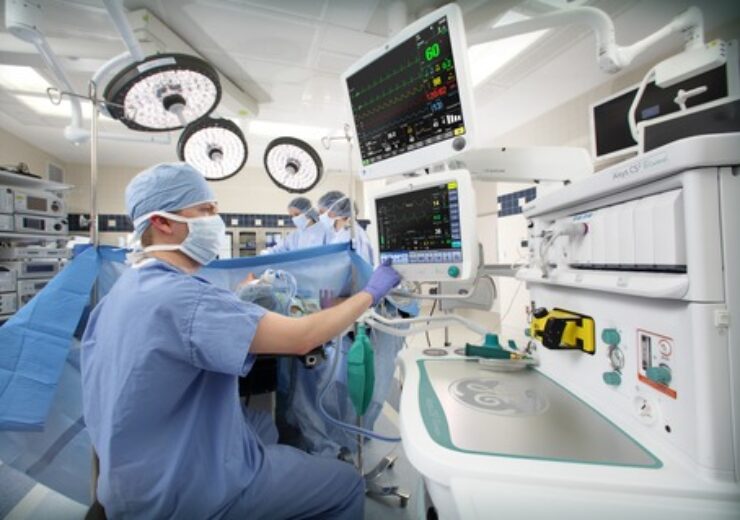The FDA approval was based on the findings of the multi-centre, multi-year MASTER-Anesthesia Trial on more than 200 patients (18 years or above) in the US

GE Healthcare's Aisys CS2 Anesthesia Delivery System with Et Control. (Credit: Business Wire/ GE Healthcare)
GE Healthcare, the healthcare arm of General Electric (GE), launched the software in Europe in 2010.
With the latest approval, GE Healthcare has become the only company in the US to offer general anaesthesia delivery with end-tidal concentration control.
Et Control software will be used in the firm’s Aisys CS2 Anesthesia Delivery System to preset the desired end-tidal concentrations of oxygen and anaesthetic agent.
Once the targets are set, the software will achieve the targets irrespective of changes in the patient’s hemodynamic and metabolic condition.
Et Control solution will enhance anaesthetic delivery accuracy and processes while minimising medication waste, healthcare costs, and greenhouse gas emissions.
GE Healthcare anaesthesia and respiratory care business general manager Eric Ruedinger said: “Anesthesia providers in the US will have access to the most advanced anaesthesia tools available to improve patient care.
“As the long-standing global leader in anaesthesia delivery, GE Healthcare invested in the development and clinical validation of this Et Control algorithm, and we are committed to creating clinically relevant solutions that will enhance anaesthesia practices into the future.”
The FDA clearance was based on the findings of the multi-centre, multi-year MASTER-Anesthesia Trial on more than 200 patients (18 years or above) in the US.
The trial compared the safety and efficacy of the Et Control software to traditional anaesthetic gas distribution systems.
GE Healthcare is planning to deploy the Aisys CS2 Anesthesia Delivery System with Et Control in the US in the next few months.
The company claims that its Et Control software is being by anaesthesia professionals in more than 100 nations to provide care for patients.
